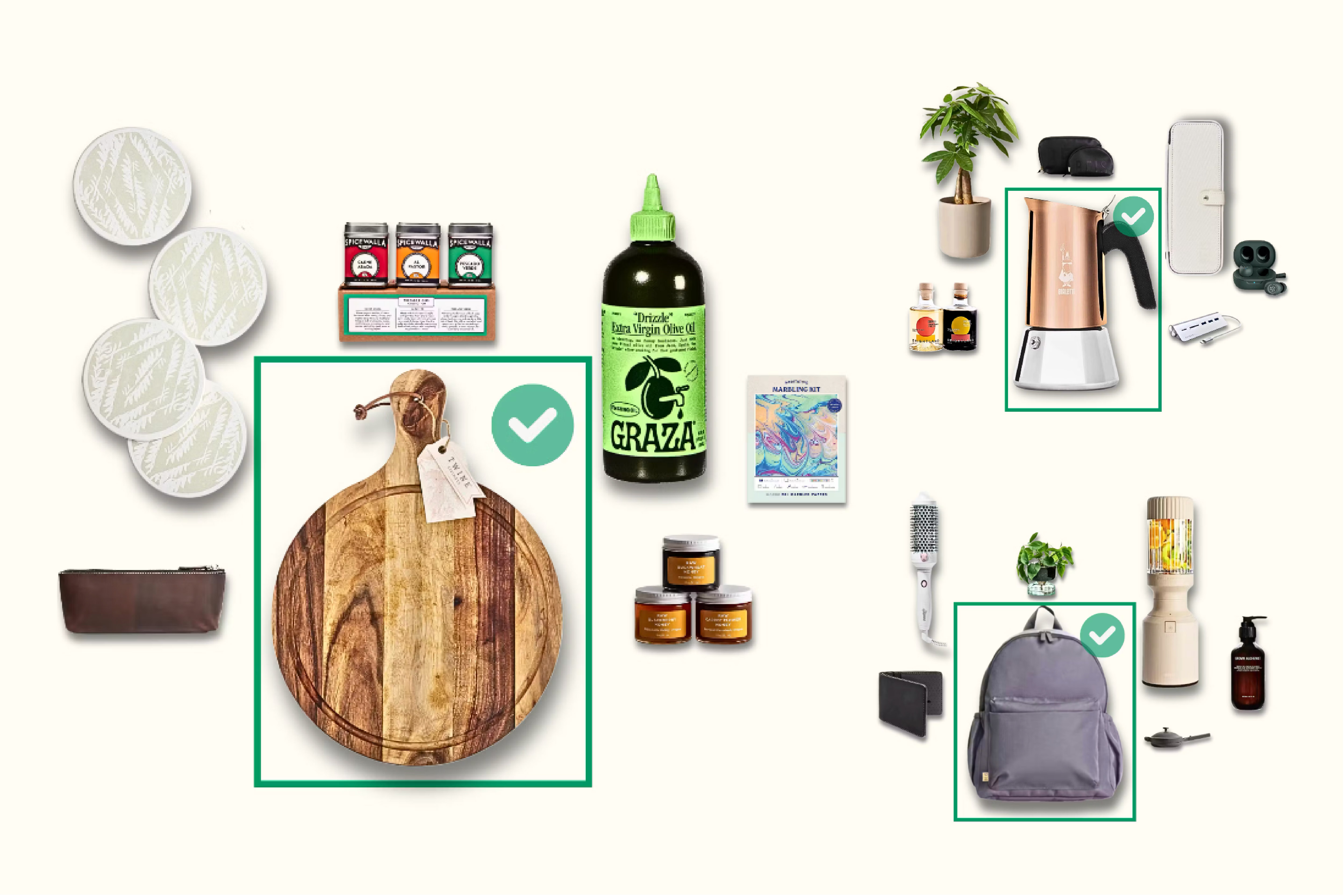Beyond Swag: Why Recipient-Choice Gifting Wins
Discover why generic swag fails and how Recipient-Choice gifting drives 97% satisfaction, stronger ROI, and real employee connection.

Beyond Swag: The Rise of Recipient-Choice Gifting in Corporate Culture
For decades, corporate gifting has meant boxes of branded mugs, stacks of T-shirts, or water bottles with a company logo splashed across the side. They were sent with good intentions, but too often ended up in desk drawers, donation bins or landfills.
Today, the world of work is different. Teams are distributed. Cultures are more diverse. Employees are asking deeper questions about whether they feel seen, valued and cared for. In this new environment, the one-size-fits-all gift is no longer a perk, it’s actually a liability.
Companies that want to build loyalty and culture need to move beyond swag.
Why Traditional Swag Falls Flat
Generic gifts don’t just miss the mark—they waste budget, erode trust, and leave employees underwhelmed. Consider:
- Low usage: A 2022 survey by Coresight Research found that nearly 50% of branded swag is rarely or never used.
- High waste: The Environmental Protection Agency (EPA) estimates show that Americans discard 17 million tons of textiles annually including many tons of promo T-shirts and bags. In fact, in 2021 Patagonia ceased offering branded options because of the tremendous amount of their clothing that was ending up in landfills.
“Patagonia is transitioning away from adding additional logos to our products, and we want to be clear about why. What we’ve learned is that adding an additional non-removable logo reduces the life span of a garment, often by a lot, for trivial reasons. Perfectly good gear ends up forgotten in the closet—or worse, gets tossed in the trash. In 2018 alone, 11.3 million tons of textiles ended up in landfills, and we’re not okay being a part of that."
- Poor perception: Studies show that unwanted gifts can actually decrease feelings of appreciation, because recipients interpret them as thoughtless.
- Missed opportunity cost: Every dollar spent on unused swag is a dollar not spent on real recognition or engagement.
In short: swag sends the wrong message. Instead of “we value you,” it often says “we didn’t think about you.”
The Shift Toward Choice
Recognition today is about personalization and empowerment. Employees—especially Millennials and Gen Z, who now make up the majority of the workforce—expect the freedom to choose what fits their lifestyle.
Three trends are driving the shift:
- Diversity of tastes: Global and remote teams span cultures, dietary preferences, and lifestyles. One item rarely works for all.
- Value of autonomy: Research consistently shows that autonomy is a core driver of employee satisfaction. Choice is recognition that respects individuality.
- Sustainability pressures: Companies are under scrutiny to reduce waste. Recipient-Choice gifting cuts out the landfill problem.
That’s why leading companies are turning to a better model: Recipient Choice.
What Is Recipient-Choice Gifting?
Recipient Choice flips the corporate gifting script. Instead of a single, predetermined item, employees and clients receive a curated selection to choose from.
- They pick from experiences, food and beverage, wellness, tech, and lifestyle options.
- Localized catalogs ensure gifts are meaningful across cultures.
- The result: every recipient gets something they actually want—and companies don’t waste resources guessing.
At Caroo, we’ve seen this play out firsthand:
- Recipient Choice gifts and Wishlist gifting rank 30% higher in perceived experience than one-size-fits-all gifts.
- Each gift is, on average, chosen only twice across thousands of recipients—showing the power of diversity and personalization.

Why Companies Are Embracing It
The business case is clear. Recipient-Choice gifting delivers:
- Higher satisfaction and loyalty
- 97% satisfaction (Caroo data) vs. ~60% industry averages for traditional swag.
- When people choose, they’re three times more likely to share positive feedback.
- Better ROI on gifting spend
- Every dollar goes toward a gift that is actually used.
- Eliminates warehouse, leftover, and shipping inefficiencies tied to bulk swag.
- Administrative simplicity
- One bulk send; many personalized outcomes.
- Caroo handles address collection, fulfillment, and logistics across 30+ countries.
- Alignment with company values
- Promotes inclusivity: everyone, regardless of dietary restrictions or culture, feels seen.
- Supports sustainability: fewer unwanted items ending up in landfill.
The Real-World Impact
One Fortune 500 client replaced annual swag bags with Recipient Choice gifting. The results:
- Feedback improved dramatically: 55% of recipients left positive notes of gratitude and feedback like, “This was the first time I felt like a company gave me something for me.”
- Operational cost savings: No unused inventory, no leftover shipments, no wasted budget.
Instead of groans about “another mug,” the company heard gratitude and connection. That’s the difference between sending swag and creating a moment of care.
The Future of Corporate Gifting
Corporate gifting is no longer about logos, it’s about people. Just as personalization transformed marketing and consumer experiences, it’s now transforming how companies recognize and connect with employees.
The future will be:
- Recipient-driven: Empowering people to choose their own gifts.
- Experience-oriented: Moving beyond physical objects into memorable experiences.
- Data-informed: Companies using gifting analytics to understand what employees value.
- Sustainability-minded: Reducing waste by eliminating unwanted swag.
Caroo is proud to be at the forefront of this shift, designing gifting programs built on thousands of points of recipient feedback, not guesswork.
Conclusion
Moving beyond swag isn’t just about cleaning up the closet. It’s about creating a culture of respect, recognition, and authentic connection. Companies that empower recipients to choose are sending a bigger message: we see you, we value you, and we want this to be meaningful for you.
👉 Ready to see it for yourself?
[See Recipient Choice in action]


